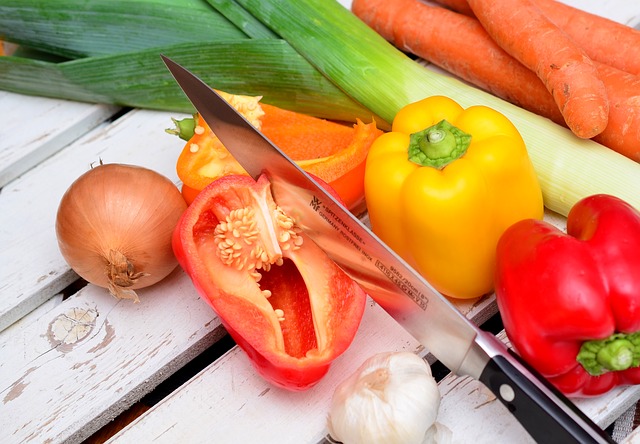
With many people trying to tighten their belts both physically and fiscally right now, we thought we’d offer you 10 tips to selecting healthy foods to help you accomplish both. During tougher economic times, you can still eat well for less money. The key is to depend more on the plant kingdom for your sources of protein and fiber. From a health standpoint, your diet is going to be the healthiest (and cheapest) if it is at least partially vegetarian. With that in mind, here are your 10 tips to eat organic on a budget:
- Make a bean dish for the main course several nights a week. Beans are versatile and come in many varieties that can be used in dishes ranging from hummus and other dips to soups and stews or chili and casseroles. Dried or canned beans can be used; if you use canned beans, be sure and rinse them until all the foam is gone to avoid any unwanted after-effects.
- Eat seasonally and locally. Local, seasonal produce is usually a better value than imported, so plan your menus accordingly, and make extra to freeze for later use. The side benefit is that really fresh, seasonal produce tastes much better and retains more nutrients.
- Drink more water. You can limit the amount of sugary and alcoholic beverages you consume without having to give up flavor by adding some fresh squeezed lemon or lime to your water, purchasing flavored drink mixes (such as Endura Lemon Lime or Orange) to add to your water, or using Stevia drops or Emer-Gen-C for a change of pace.
- Eat more dried fruits. Dried fruits like raisins or prunes offer lots of nutrients in a small serving and the drying process gives them added iron. Use them for dessert and in snacks with raw nuts.
- Choose whole grains instead of processed products. Whole grains have more flavor, texture and trace minerals than processed foods (such as bread, pasta, white rice, etc.). They are cheaper, more filling and a whole lot healthier – make enough for a few days and refrigerate/freeze the leftovers for later use.
- Eat more sweet potatoes. Sweet potatoes are delicious and are one of the most nutritious and economic foods available.
- Add onion to main dishes or serve them grilled as a side dish. Onions are rich in vitamins and they make a wonderful side item when they are grilled or sautéed with olive oil and seasoned with herbs and/or sea salt.
- Keep some frozen vegetables in the freezer, and use them. One of the main costs with produce is wasted food. Avoid this by having some frozen veggies and fruits on hand to make a quick meal.
- Become a container gardener. Chives and many other herbs are inexpensive and easy to grow in small containers. That makes it easy to have fresh herbs available even with limited space. Some fruits and vegetables can also be grown in containers or limited space. Tomatoes are very nutritious and greens are very inexpensive to grow; both do well in limited spaces.
- Always consider the healthiest methods for preparation. Your eating nutritious foods, make sure to get as many nutrients as possible by baking, broiling, steaming or stewing them.
Use these tips to help feed yourself, increase your health and be good to the planet!
This post comes to us from our friends at Natural Solutions for a Healthy You.


Does the prepped organic vegetables sold in stores has BPA or is of health concern?
Thanks
Greetings VR – organic vegetables should not contain BPA, but you can/should certainly check with the produce department at the store in question for confirmation.
Sincerely,
Dr. Chad